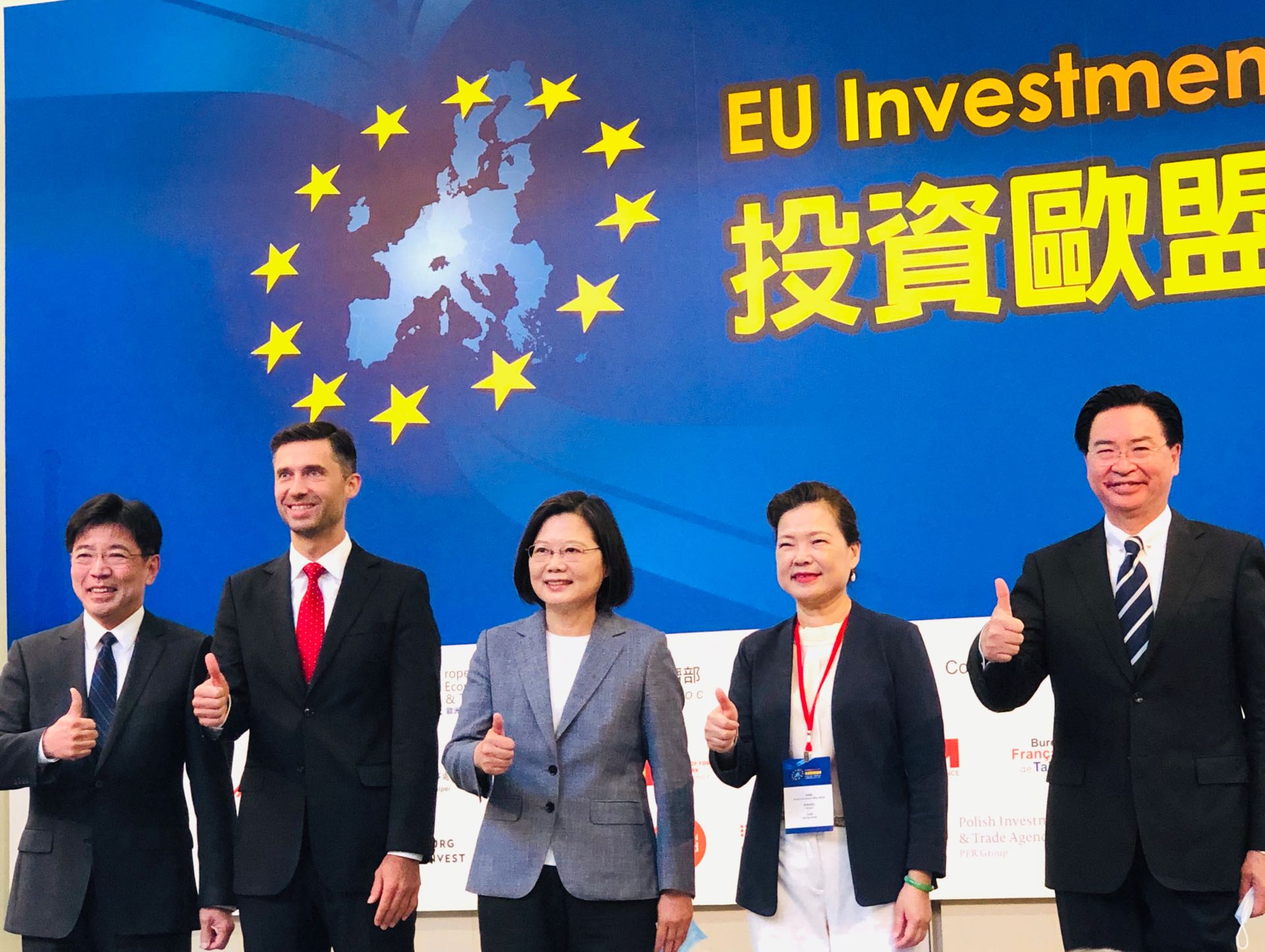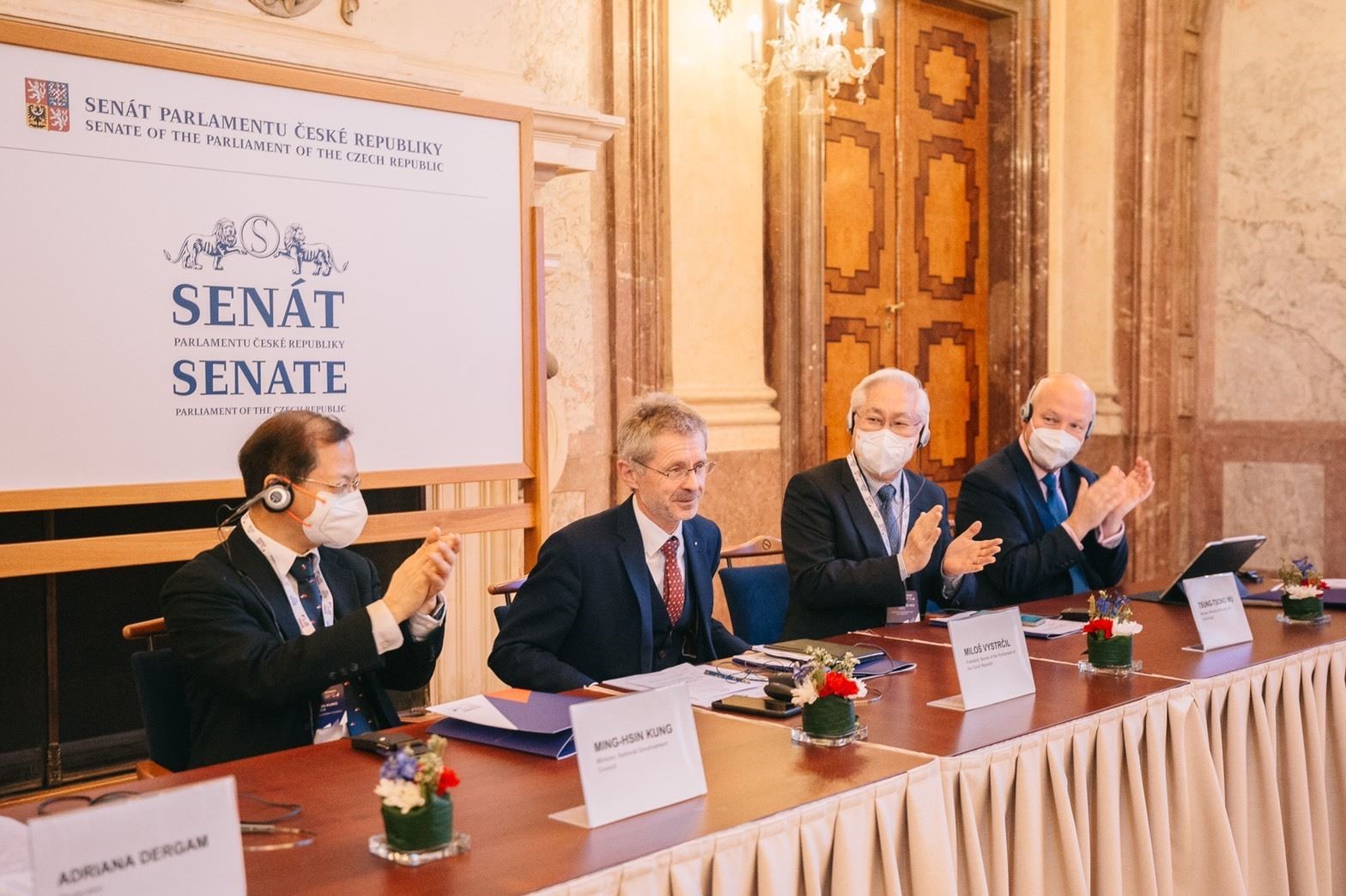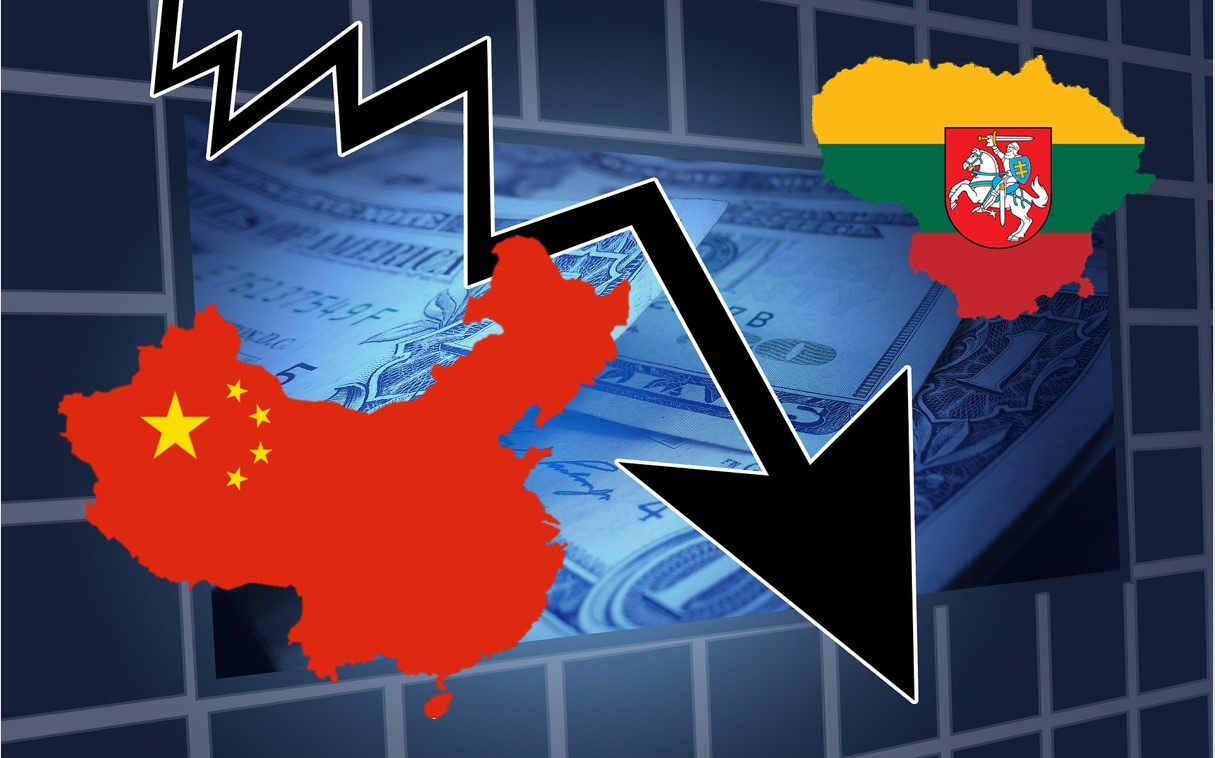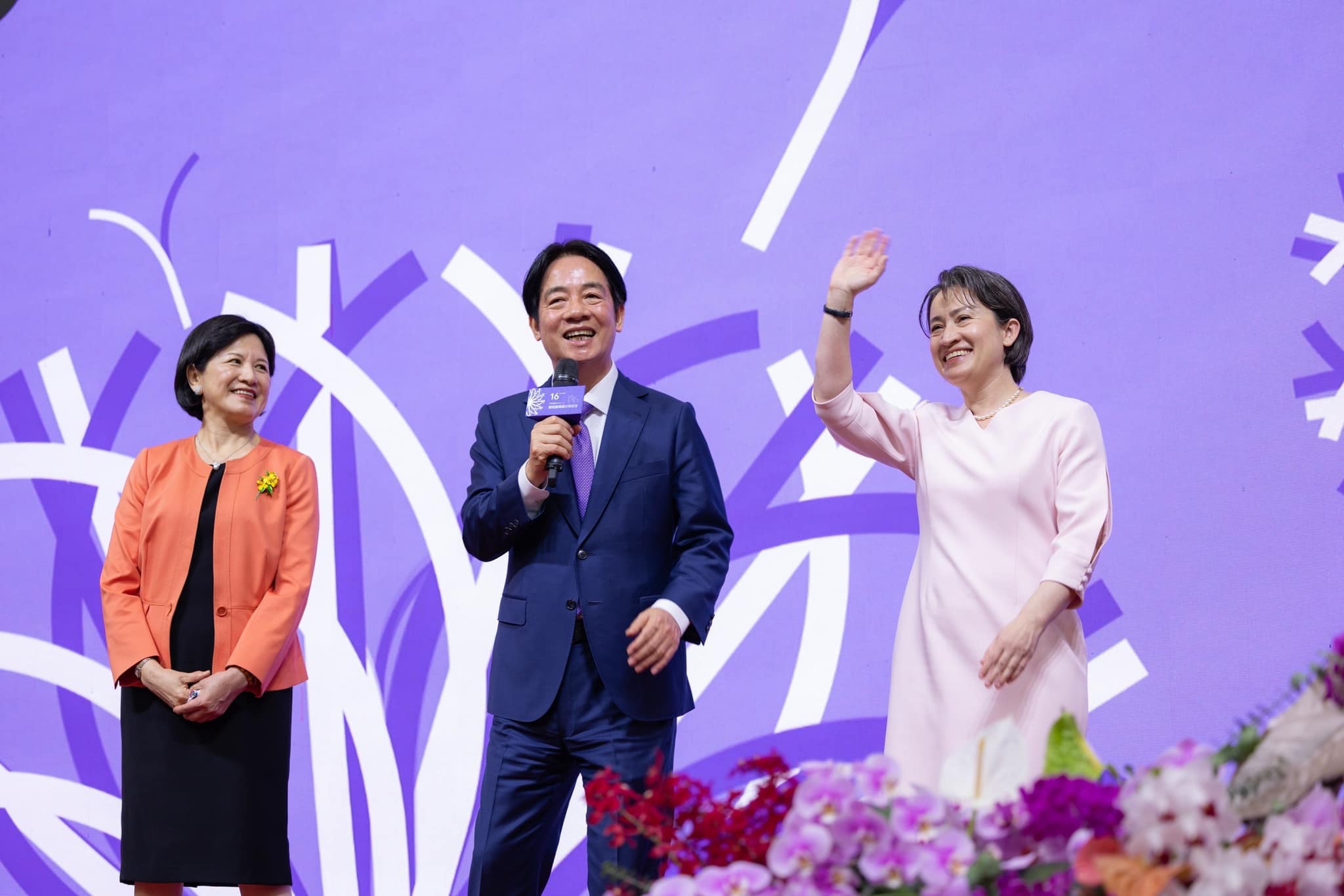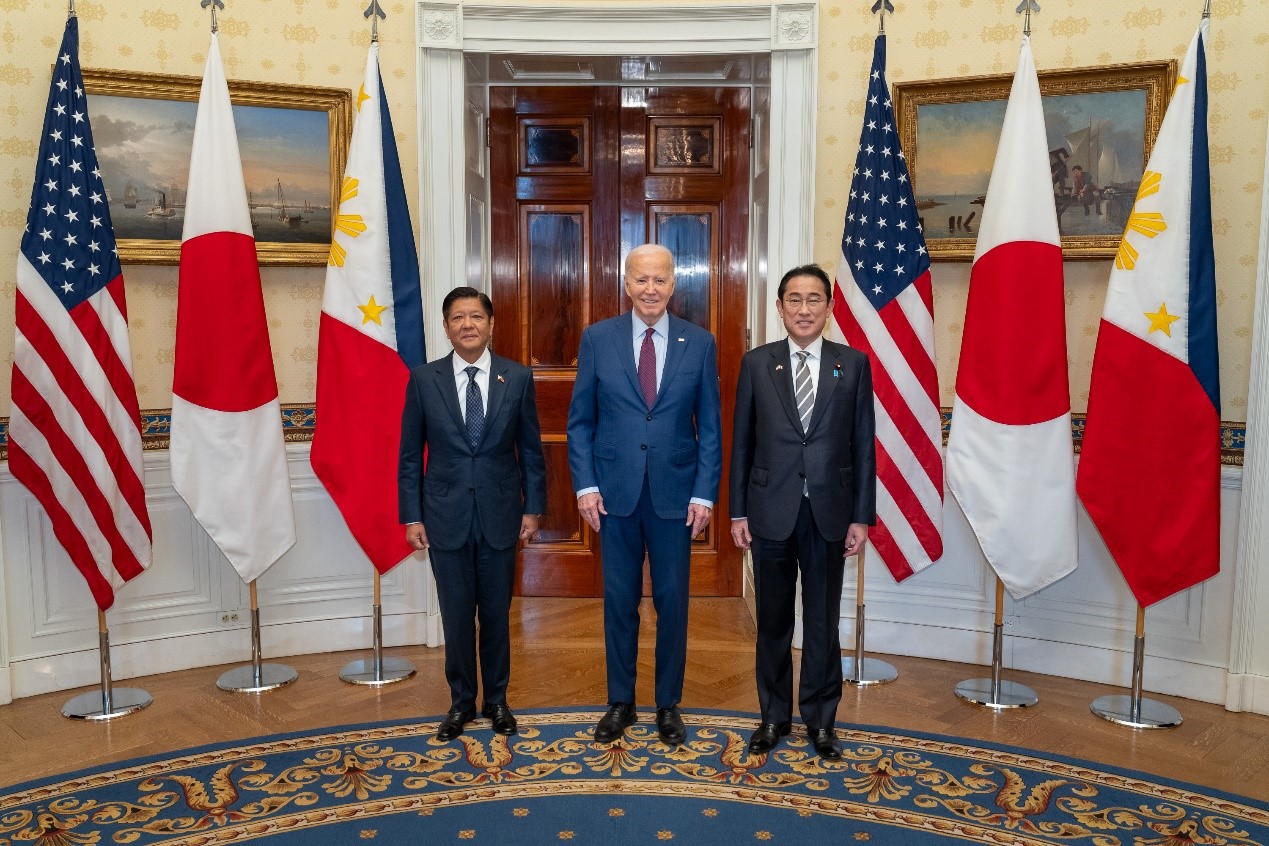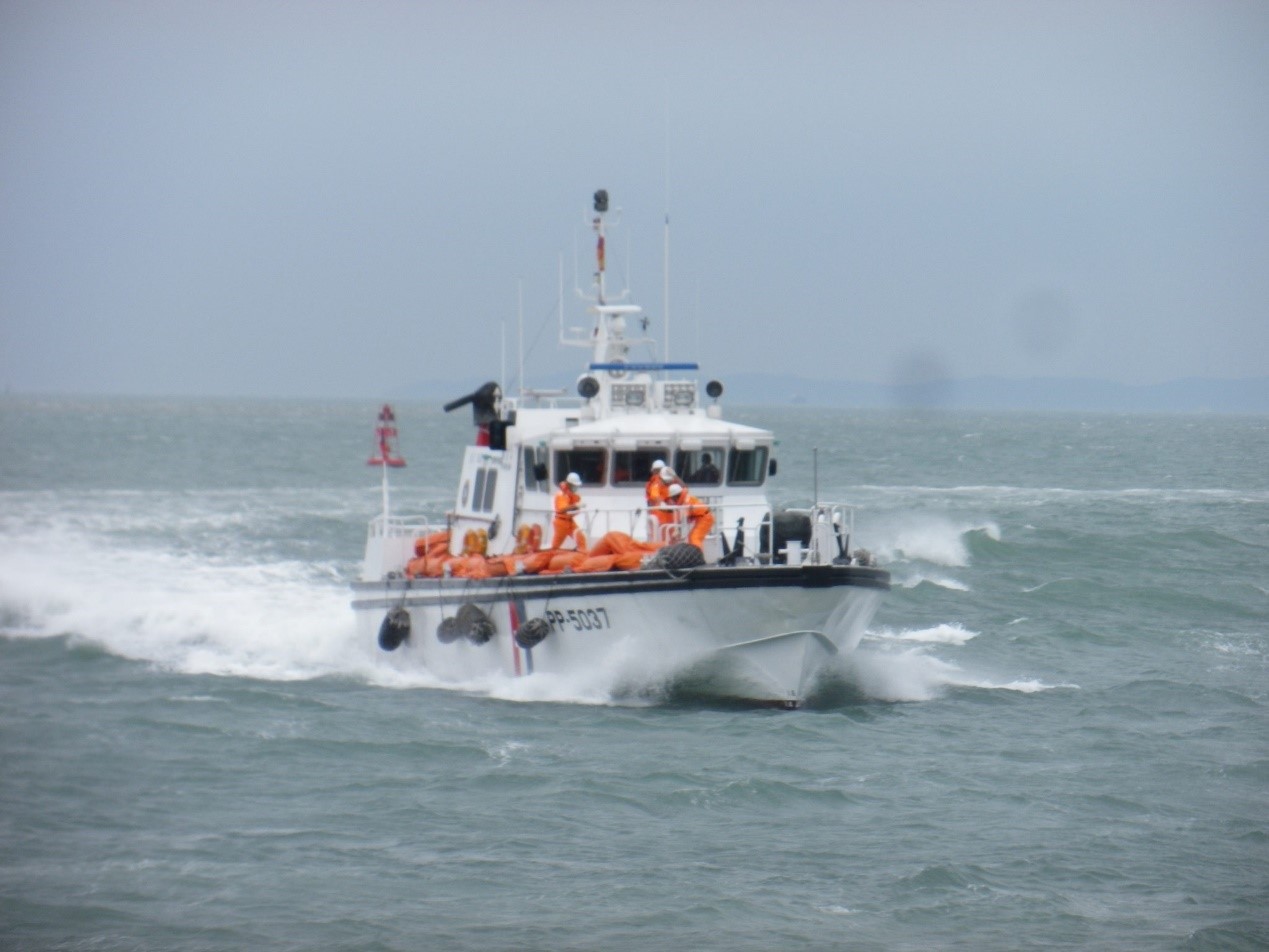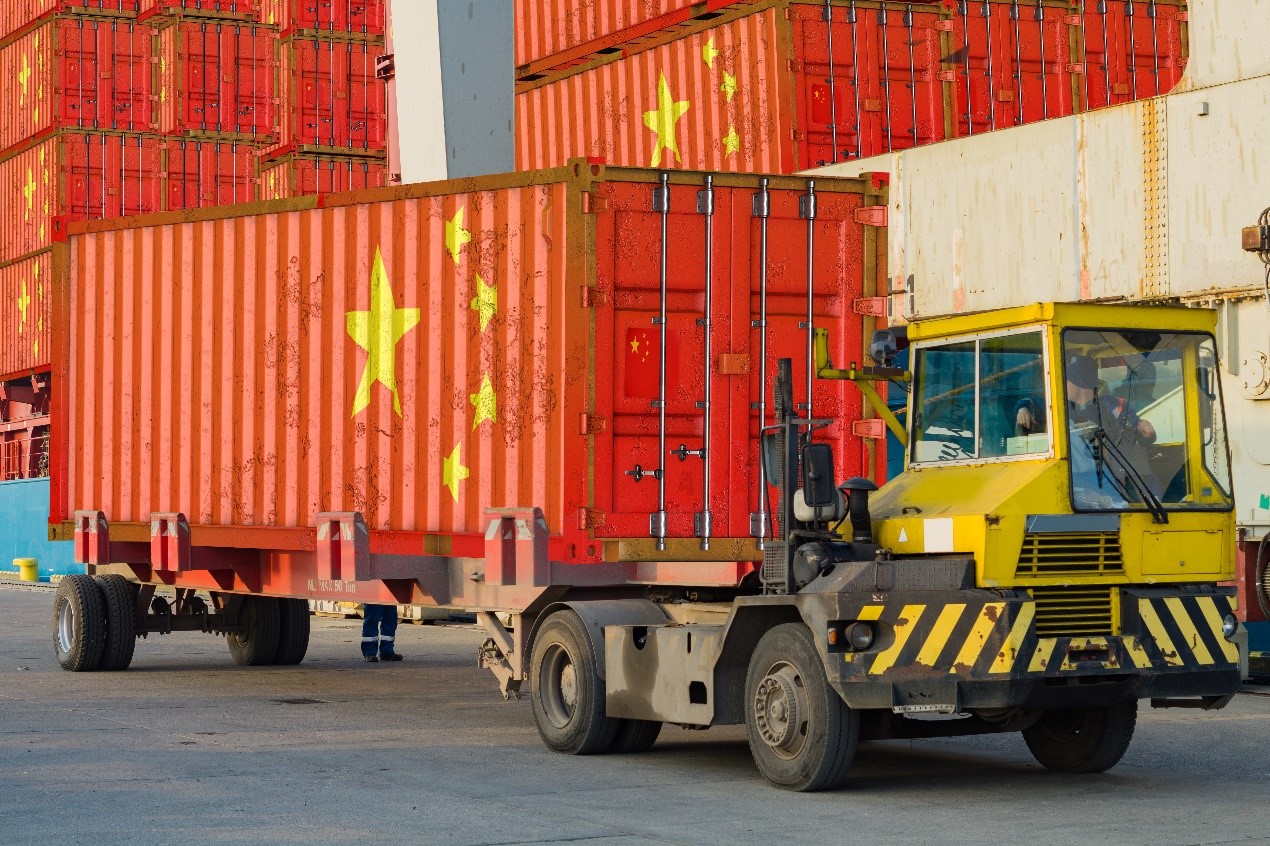Taiwan, the EU and the Indo-Pacific: Perceptions and Prospects for Cooperation
The EU and Taiwan share the fear of an authoritarian China and seek similar goals, namely to reduce their vulnerabilities and overdependence on China, both in terms of their economy and political values. As such, in its Indo-Pacific Strategy, the EU identified Taiwan as a reliable partner in building resilient and diversified value chains. Picture source: Ministry of Economic Affairs, R.O.C.(Taiwan), September 22, 2020, Ministry of Economic Affairs, R.O.C.(Taiwan),
Prospects & Perspectives 2022 No. 3
Taiwan, the EU and the Indo-Pacific: Perceptions and Prospects for Cooperation
By Zsuzsa Anna Ferenczy
January 11, 2022
"The Indo-Pacific is a very important part of the world for us. It is the future, where the world’s center of gravity is moving, both in geo-economic and geo-political terms,” said the High Representative of the European Union (EU), Josep Borrell, at the launch of the EU Strategy for Cooperation in the Indo-Pacific in September 2021. The Strategy marked the first instance of Brussels embracing the concept on an EU-level, indicating a strategic awakening to rethink its approach to a region with great potential for European interests, key to shaping the international order in the twenty-first century.
This conceptual framing has been at the core of a process of self-reflection inside the bloc on the EU’s own global relevance in the midst of a rapidly changing international environment, a process led by a “geopolitical” Commission. The growing strategic rivalry, which carries an ideological component between the United States and China, and fears of the consequences of China’s rise, have brought the concept of “strategic autonomy” to the top of its agenda.
For the first time Brussels elevated Taiwan to the level of a “partner,” while upholding its commitment to “pursue its multifaceted engagement with China.” The extent to which the Strategy will turn into reality hangs on many factors. Brussels and Taipei must now identify concrete ways to expand practical cooperation. Mindful of existing internal constraints on both ends, they should also adjust their expectations of each other accordingly.
A New Reality, on Old Pillars
In October 2021, High Representative Borrell stressed that the Strategy offered “an excellent platform to broaden cooperation” with Taiwan. China’s displays of force in the Taiwan Strait “may have a direct impact on European security and prosperity,” he added.
These developments capture a new reality both inside the bloc and beyond; a more aware, alert and ambitious EU seeking to become a global player in the midst of a tense geopolitical landscape. They also reveal the centrality of the China question to Europe’s turn toward the Indo-Pacific. The bloc’s relationship with China, fragmented between member states, will be a key factor shaping the long-term future of the Strategy.
In this new reality, for the first time Brussels is drawing the contours of an EU discourse on Taiwan, which coexists with an assertive China discourse, with the European Parliament driving both. In their first stand-alone report on Taiwan in October 2021, lawmakers urged considering Taiwan “a key partner and democratic ally in the Indo-Pacific on its own merit, as a robust democracy and technologically advanced economy that could contribute to maintaining a rules-based order in the middle of an intensifying great power rivalry.”
At the same time, it is noteworthy that the European Parliament has urged that the pursuit of an enhanced partnership with Taiwan should happen “under the guidance of the EU’s One China Policy,” echoing member states’ position.
The EU’s adherence to its own One China Policy remains a fundamental pillar of the new reality. Yet, perceptions of the significance of this policy must be adjusted accordingly. In other words, instead of seeing the Policy as a constraint, Taipei and Brussels must support a jointly agreed framework for a stable and prosperous Indo-Pacific by exploring practical cooperation, building on the progress achieved in 2021 and bringing solutions to their needs.
Problems and Solutions
Taiwan and the EU have their own “China problem.” Yet, both understand that the international cooperation of like-minded democracies is indispensable to address the consequences of the rise of an assertive China in the Indo-Pacific.
For the past three decades China has been a strategic partner of the EU, and since 2019 a “systemic rival.” While member states have embraced a conceptual shift in their perception of China and adopted defensive measures against Beijing’s economic coercion, propaganda and disinformation efforts and authoritarian threat, there is no consensus on how to accommodate engagement, at the core of the EU’s normative power identity, with an assertive tone on China.
To Taiwan, the People’s Republic of China has been a hostile neighbor, presenting an existential threat. Beyond sharp rhetoric, the Chinese Communist Party has marshaled its full range of capabilities to intensify pressure on Taiwan below the threshold of armed conflict. In response, Taiwan has set an example to the world of how to withstand pressure and prosper through resilience, transparency, trust and technology. In her 2021 National Day Address, Taiwan’s President Tsai Ing-wen said Taiwan was “willing to do its part to contribute to the peaceful development” of the Indo-Pacific.
Taiwan has received global praise for its successful handling of the pandemic at home and generosity abroad. With its economy growing at its fastest pace in more than a decade, in 2021 Taiwan has become vital to both China and the U.S., as a dominant producer of the world’s most advanced semiconductors.
Taiwan as a Partner
Europe’s economic future and geopolitical relevance are intimately linked to developments in the Indo-Pacific. Brussels placed Taiwan at the core of its Indo-Pacific Strategy, acknowledging that any disruption in the Taiwan Strait would send shock waves through global supply chains and carry significant implications for the EU. In this context, the Commission proposed a European Chips Act to create a “state-of-the-art European chip ecosystem” to guarantee secure and stable supply chains. Partnering with Taiwan in this regard would help shield both sides from disruptions and protect their competitiveness.
The EU and Taiwan share the fear of an authoritarian China and seek similar goals, namely to reduce their vulnerabilities and overdependence on China, both in terms of their economy and political values. As such, in its Indo-Pacific Strategy, the EU identified Taiwan as a reliable partner in building resilient and diversified value chains. Members of the European Parliament also proposed the establishment of a common disinformation hub in Taipei.
European leaders have emphasized the right of member states to cooperate with Taiwan as a WTO-member and a robust democracy. These dynamics are further cementing the contours of the emerging Taiwan-friendly EU-discourse.
Furthermore, Taiwan and the EU must work together to expand practical cooperation with other like-minded partners in the region, including India, Japan and South Korea, to strengthen rules to protect international trade against unfair practices, including economic coercion or forced technology transfer.
The Future
The past two decades forced the EU into a crisis management mode. In this light, Brussels’ turn toward the Indo-Pacific and its geopolitical ambitions have not convinced everyone. The EU today remains torn on China, struggling with many challenges, including migration, disinformation, and an aggressive Russia threatening Ukraine, its neighbor to the east, with military invasion. The pandemic, accompanied by an ‘infodemic,’ has created an “information disorder,” undermining Europe’s democracy.
With Europe turning inward, in 2019 French President Emmanuel Macron warned of the risk of the EU drifting into geopolitical irrelevance, urging his fellow leaders to instead think in terms of sovereignty and power, particularly in defense and technology. In 2022, with France taking over the Presidency of the Council for the first six months, Brussels must consolidate European convergence regarding its role in the Indo-Pacific, with Taiwan at the core of its strategic awakening.
Neither Taipei nor Brussels should see the EU’s adherence to its One China Policy as a constraint in expanding bilateral cooperation. Instead, both sides should perceive each other as reliable and indispensable partners whose prosperity and security are closely intertwined.
(Dr. Ferenczy is a Post-doctoral Researcher hosted by the Ministry of Science and Technology of Taiwan, Head of Associates Network at 9dashline, Non-resident Fellow at NextGen Taiwan and former political advisor in the European Parliament (2008-2020). )


